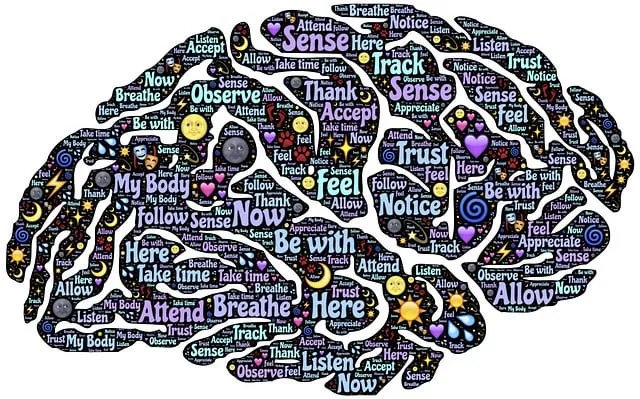Kaiser Permanente mental health facility Centennial offers specialized support for loss, grief, and bereavement, empowering individuals through empathy-driven therapy, evidence-based methods like CBT, and cultural sensitivity. Their personalized counseling services help clients navigate complex emotions, develop coping strategies, and foster resilience, addressing complicated grief early for improved outcomes. Caregivers play a crucial role in this holistic approach, offering tailored care, challenging mental illness stigma, and promoting healthy expression through activities like journaling and art therapy.
Loss, grief, and bereavement are universal human experiences that can profoundly impact our emotional well-being. This comprehensive guide explores these complex topics, offering insights into the various stages of grieving and the vital role counseling plays in navigating difficult times. We delve into specific strategies employed at Kaiser Permanente Centennial’s mental health facility to support individuals through loss, highlighting therapeutic approaches tailored for effective healing. Understanding when professional help is necessary is also addressed to empower caregivers and families.
- Understanding Loss, Grief, and Bereavement: A Comprehensive Overview
- The Role of Counseling in Navigating Difficult Times (at Kaiser Permanente Centennial)
- Identifying Signs of Complicated Grief: When Professional Help is Necessary
- Therapeutic Approaches in Mental Health Facility Settings
- Supporting Individuals Through the Grieving Process: Strategies for Caregivers
Understanding Loss, Grief, and Bereavement: A Comprehensive Overview

Loss, grief, and bereavement are complex emotions that can significantly impact an individual’s mental well-being. Understanding these concepts is crucial when seeking support at a Kaiser Permanente mental health facility Centennial. Loss refers to the absence or removal of something valuable, such as a loved one, while grief is the intense emotional response to that loss. Bereavement, on the other hand, is the period of time following a significant loss during which individuals adjust and cope with their new reality.
At Kaiser Permanente’s mental health facility Centennial, we recognize that each person’s experience with loss, grief, and bereavement is unique. Our dedicated professionals employ empathy-building strategies to help clients process these emotions effectively. We understand the importance of positive thinking in maintaining mental resilience during challenging times. Additionally, healthcare providers can benefit from burnout prevention strategies to ensure they are equipped to offer compassionate support to their patients navigating these sensitive issues.
The Role of Counseling in Navigating Difficult Times (at Kaiser Permanente Centennial)

At Kaiser Permanente Centennial, counseling plays a pivotal role in guiding individuals through the complex landscape of loss, grief, and bereavement. This mental health facility offers specialized services tailored to meet the unique needs of those grappling with profound emotional challenges. Trained therapists provide a safe and supportive environment where clients can openly process their feelings, memories, and reactions, fostering healing and adaptation.
Through evidence-based therapeutic approaches, Kaiser Permanente Centennial’s counselors assist individuals in navigating difficult times, offering trauma support services to help them overcome coping mechanisms and build resilience. By focusing on emotional regulation, problem-solving skills, and confidence-boosting strategies, these mental health professionals empower clients to manage stress, make informed decisions, and develop effective risk management planning for their long-term well-being.
Identifying Signs of Complicated Grief: When Professional Help is Necessary

Grief is a natural response to loss, but when it becomes prolonged and intense, it may indicate complicated grief. This condition can significantly impact an individual’s daily functioning and well-being, making it crucial to recognize the signs. At the Kaiser Permanente mental health facility in Centennial, professionals are trained to assist those struggling with this complex process.
If you or someone close to you is experiencing persistent feelings of sadness, anger, or guilt that interfere with regular routines, it might be a sign of complicated grief. Disrupting one’s ability to think positively and engage in activities they once enjoyed is a red flag. The Community Outreach Program Implementation at this facility offers valuable resources and Crisis Intervention Guidance for individuals navigating these challenges. Seeking professional help is essential when grief feels unmanageable, as early intervention can lead to more positive outcomes and support during the healing process.
Therapeutic Approaches in Mental Health Facility Settings

In the context of loss, grief, and bereavement counseling at a Kaiser Permanente mental health facility like the Centennial location, therapeutic approaches are tailored to meet the unique needs of each individual. The Kaiser Permanente mental health facility offers a comprehensive range of services designed to support emotional well-being promotion techniques that address the complex interplay of grief and mental health. One prominent approach is cognitive-behavioral therapy (CBT), which helps individuals identify and change negative thought patterns associated with loss, thereby boosting their confidence in managing their emotions.
Cultural sensitivity in mental healthcare practice is a cornerstone of these therapeutic interventions. Counselors at the Centennial Kaiser Permanente facility are trained to respect and incorporate cultural beliefs and practices into treatment plans, ensuring that care is holistic and respectful of diverse backgrounds. This sensitive approach not only enhances the effectiveness of counseling but also fosters trust and openness, crucial elements in facilitating healing from loss and grief.
Supporting Individuals Through the Grieving Process: Strategies for Caregivers

Supporting individuals through their grieving process is a vital role for caregivers at Kaiser Permanente mental health facilities like Centennial. The journey of grief is deeply personal and unique to each individual, making it essential for caregivers to understand that there’s no one-size-fits-all approach. Strategies for effective support include active listening, providing a safe space for expression, and encouraging healthy coping mechanisms. This might involve helping them engage in activities they find comforting, such as journaling, art therapy, or simply spending time in nature.
Caregivers play a crucial role in navigating the complexities of grief by assisting individuals in identifying and challenging any mental illness stigma they may be facing. By promoting open dialogue about emotions and experiences, caregivers can foster a supportive environment that encourages stress management and depression prevention. This holistic support ensures that those grieving receive the comprehensive care needed to heal and find meaning in their loss.
Loss, grief, and bereavement counseling are vital components of emotional support, especially in challenging times. As highlighted by Kaiser Permanente mental health facility in Centennial, counseling plays a crucial role in helping individuals navigate the complex landscape of grief. By understanding the signs of complicated grief, caregivers can identify when professional intervention is necessary, ensuring access to therapeutic approaches tailored for recovery. These resources, available within dedicated mental health facilities, offer comprehensive care, fostering resilience and healing during times of profound loss.






